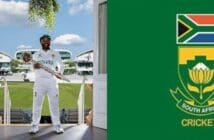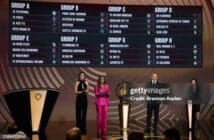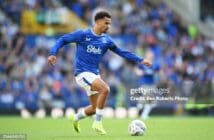The big problem for the Elephants heading into the Olympics had to be stepping out of the shadows of the Eagles, the Lions and the Black Stars.
Football at the Olympics has been a happy hunting ground for African teams over the last 25 years since the triumph of Nigeria’s ”Dream Team” in 1996 at Atlanta. With sub-regional rivals like Nigeria, Ghana and Cameroon achieving varying degrees of success at the Olympics, it was always going to be a tough campaign for Cote D’Ivoire’s under-23 side.
Firstly, a tough group with giants Brazil and Germany was always going to be a tall order, and their only likely take away from the group stage would have been a win over Asia’s representatives, Saudi Arabia, with all due respect to them.
With a squad containing established European superstars like AC Milan’s Frank Kessie, Manchester United’s Eric Bailly and Amad Diallo as well as experienced winger Max Gradel. A good squad, you would say, but a huge downgrade from the team that secured qualification, finishing second behind Egypt, which remains a major issue with qualifying for the football event of the Olympics.
What better way to start off than with a victory over the lowest-ranked team in the group. Saudi Arabia. It was not so straightforward for the Ivorians but thanks to the quality of Frank Kessie, they prevailed. In the second game against tournament favourites, Brazil didn’t hit the expected heights especially after the early dismissal of Douglas Luiz.
The Ivorians failed to take full advantage but a draw seemed a fair result as a means to seek qualification into the knockout phase. A second draw against Germany secured the West African nation’s path to the knockout phase as they finished second behind Brazil and ahead of European heavyweights Germany.
Three goals scored with two being own goals highlights how underwhelming the Ivorian campaign was. From a 4-5-1 to a 5-4-1 formation clearly indicates a team mainly built on defensive solidity than any real attacking prowess. This approach had served them well from the qualifiers all the way to the Olympics so there was no point in changing what worked.
Interestingly this defensive discipline seemed to desert them as they tried to add a bit of adventure and invention to their play. A switch to a 4-4-2 in the quarter-final game against Spain gave an early indication of what Soualiho Haidara sort to achieve which was to go toe-to-toe with the Spaniards.
It nearly worked as a stoppage-time goal from captain Max Gradel seemed to have sealed things, but Rafa Mir had other ideas and a hat-trick knocked out the Ivorians.
Overall, Ivory Coast can look at this campaign and look to the future positively. From this current squad, there are about nine players who could still be available for the next Olympics in Paris, harnessing their potential to achieve a shot at a gold medal is another thing.
Follow us on Twitter @ProstInt
![Prost International [PINT]](https://prostinternational.com/wp-content/uploads/2021/08/PINTtFontLogoRoboto1536x78.jpg)


